As the world becomes increasingly digital, technology is transforming almost every aspect of our lives, and education is no exception. With the rise of AI technology, educators now have access to powerful tools that can personalize learning experiences, improve student outcomes, and automate administrative tasks. From AI-powered tutoring systems to chatbots that provide instant feedback and support, there are a variety of tools available that can enhance the learning experience for students.
In this blog post, we'll explore some of the best education AI tools available today. We'll discuss how these tools work, the benefits they offer, and how they can be used in a variety of educational settings. Whether you're an educator looking for ways to improve student outcomes or a student interested in exploring new ways of learning, this guide will provide valuable insights into the world of education AI tools.
Coursera

Coursera is an online learning platform that provides access to thousands of courses from some of the world's top universities and institutions. With a mission to democratize education, Coursera offers learners the opportunity to learn at their own pace, on their own schedule, and from anywhere in the world. Whether you are looking to upskill or reskill for career advancement, explore new interests, or simply broaden your knowledge, Coursera's diverse course catalog has something for everyone.
Pros
Cons
Overall Rank
edX
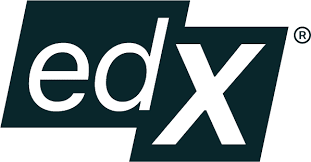
edX is a massive open online course provider that was founded by Harvard University and MIT in 2012. It offers a wide range of high-quality courses from leading universities and institutions around the world. With over 35 million registered learners, edX has become a popular platform for people to learn new skills, advance their careers, and pursue their passions. The platform's interactive and collaborative features, such as discussion forums, online labs, and peer assessments, enhance the learning experience and foster a sense of community among learners. Additionally, edX offers many courses for free, making education accessible to everyone, regardless of their financial situation.
Pros
Cons
Overall Rank
Udemy
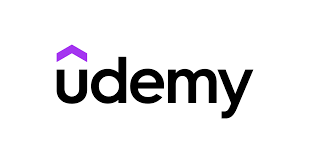
Udemy is an online learning platform that offers a wide range of courses to individuals seeking to learn new skills or expand their knowledge. With a library of over 155,000 courses taught by experts in their respective fields, Udemy offers flexible learning opportunities for users worldwide. Whether you want to learn a new language, improve your coding skills, or explore a new hobby, there is something for everyone on Udemy. The platform's user-friendly interface makes it easy to navigate and find courses that match your interests and learning goals. Additionally, Udemy offers lifetime access to all courses, allowing users to learn at their own pace and revisit course materials as often as needed. With affordable pricing and frequent sales and discounts, Udemy makes learning accessible to all.
Pros
Cons
Overall Rank
Khan Academy

Khan Academy is a non-profit educational organization that provides free online learning resources for students of all ages. The website offers a wide range of subjects, from mathematics and science to history and art, and features over 10,000 instructional videos, practice exercises, and interactive challenges. One of the most significant advantages of Khan Academy is its accessibility, allowing anyone with an internet connection to learn and improve their skills at their own pace. Additionally, the platform has a user-friendly interface and is available in multiple languages, making it an ideal learning tool for non-native English speakers or those residing in non-English-speaking countries.
Pros
Cons
Overall Rank
Duolingo
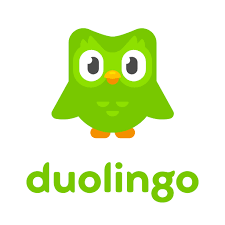
Duolingo is a popular language learning platform that has gained widespread recognition for its interactive and gamified approach to teaching. With a wide range of languages to choose from and personalized lesson plans, Duolingo has made language learning accessible and fun for millions of people around the world. Whether you're a beginner or an advanced learner, Duolingo's adaptive learning algorithm ensures that you receive the right amount of challenge and practice to improve your skills. Additionally, its social features such as leaderboards, streaks, and forums, provide a sense of community and motivation for learners to stay on track with their goals.
Pros
Cons
Overall Rank
Grammarly

Grammarly is a digital writing assistant that provides users with automated grammar, spelling, and punctuation checks, as well as suggestions for enhancing the clarity and effectiveness of their writing. It operates through a web-based application and a browser extension, allowing users to seamlessly integrate its features into their daily writing routine. Additionally, Grammarly offers a premium version that includes more advanced features such as vocabulary enhancement and genre-specific writing style checks, making it an excellent tool for both casual and professional writers.
Pros
Cons
Overall Rank
Quizlet
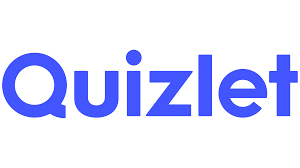
Quizlet is an online learning platform that allows users to create, share, and study digital flashcards. With over 50 million active users, Quizlet offers a variety of study modes including matching games, multiple-choice quizzes, and spelling tests. Users can also access pre-made study materials created by other users or educators. One unique feature of Quizlet is its ability to use machine learning algorithms to personalize study sets for each individual user, helping them focus on areas where they need the most improvement. Additionally, Quizlet offers a mobile app, making studying on-the-go even more convenient.
Pros
Cons
Overall Rank
Wolfram Alpha

Wolfram Alpha is a computational knowledge engine that provides answers to factual queries. Unlike traditional search engines, it does not provide a list of web pages to browse but instead provides direct answers to questions using its vast database of knowledge and algorithms. Wolfram Alpha can handle a broad range of topics, from mathematics, physics, and chemistry to history, geography, and linguistics. It can perform complex calculations, generate visualizations, and even translate between languages. This powerful tool has numerous practical applications, from assisting students with their homework to helping professionals with their research.
Pros
Cons
Overall Rank
Smart Sparrow
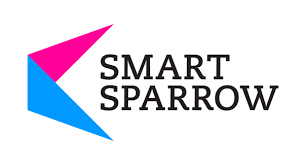
Smart Sparrow is an innovative educational technology company that aims to personalize learning experiences using adaptive algorithms and interactive content. With its cloud-based platform, educators can create and deliver engaging and interactive course content that adapts to the needs of individual learners. Smart Sparrow's platform allows educators to create simulations, virtual labs, and other interactive learning materials that can be customized to match the learning style and preferences of each student. The platform also provides real-time data analytics and insights, enabling educators to track learner progress and identify areas for improvement. With Smart Sparrow, educators have the power to create personalized, dynamic learning experiences that drive student engagement and success.
Pros
Cons
Overall Rank
Gradescope

Gradescope is an online grading platform that has revolutionized the way instructors grade papers and assessments. It allows instructors to easily upload assignments and tests, which are then scanned and digitized. This digitization process allows for quick and efficient grading, as instructors can easily assign grades, leave comments, and provide feedback directly on the digital copies. Additionally, Gradescope offers a number of helpful features, such as the ability to create answer groups and rubrics, which streamline the grading process even further. With its user-friendly interface and time-saving tools, Gradescope has become a popular choice among educators looking to streamline their grading processes.
Pros
Cons
Overall Rank
Knewton
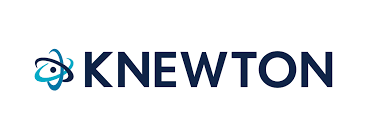
Knewton is an educational technology company that provides adaptive learning solutions to schools, universities, and publishers. Knewton's platform analyzes student performance data to personalize learning experiences and improve student outcomes. It uses machine learning algorithms to dynamically adjust course materials and activities based on each student's strengths and weaknesses. The platform is used by over 20 million students worldwide and has partnered with leading education publishers like Pearson and Houghton Mifflin Harcourt. Knewton's adaptive learning approach has the potential to revolutionize education by offering personalized learning experiences that cater to individual student needs.
Pros
Cons
Overall Rank
Carnegie Learning

Carnegie Learning is an educational technology company that provides comprehensive digital solutions for K-12 mathematics. Their approach combines cognitive and learning science with advanced technologies to create a personalized learning experience for each student. Their flagship program, MATHia, uses artificial intelligence and machine learning to adapt to each student's strengths and weaknesses, providing them with customized assignments and feedback. Carnegie Learning's approach has been shown to improve student achievement and engagement in mathematics, helping to build a stronger foundation for future success.
Pros
Cons
Overall Rank
Dreambox Learning
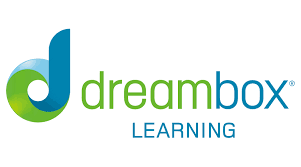
DreamBox Learning is an adaptive, online math program designed to engage and challenge students at their individual level. The program offers a personalized learning experience that supports students in developing a deep understanding of math concepts and helps them to build confidence in their math abilities. DreamBox utilizes a variety of interactive tools, games, and activities to make learning math fun and engaging for students. The program also offers real-time feedback and progress tracking for educators, allowing them to monitor students' progress and adjust instruction as needed. With its adaptive technology and engaging content, DreamBox Learning is a valuable tool for both students and educators.
Pros
Cons
Overall Rank
IBM Watson Education
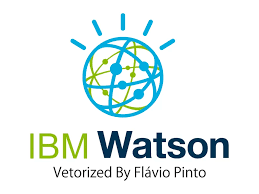
IBM Watson Education is an innovative technology solution that uses artificial intelligence (AI) to improve the quality of education. It is designed to support personalized learning, enhance teacher effectiveness, and foster student engagement. The platform is powered by Watson, a powerful cognitive computing system, which enables it to process large amounts of data and provide insights to educators in real-time. IBM Watson Education offers a range of features, including analytics, content management, and collaboration tools, all of which are aimed at helping educators make data-driven decisions and deliver more effective instruction. With its ability to analyze student data and provide personalized learning recommendations, IBM Watson Education has the potential to revolutionize the way we approach education and help students achieve their full potential.
Pros
Cons
Overall Rank
McGraw Hill Connect

McGraw Hill Connect is a digital learning platform designed to enhance student learning and success by providing a comprehensive suite of educational resources. Its intuitive interface and user-friendly design make it easy for students to access course materials, assignments, quizzes, and interactive learning tools. Connect offers a wide range of study materials such as videos, readings, and simulations, which provide students with a more engaging learning experience. Additionally, Connect provides instructors with a variety of resources to help them track student progress and provide personalized feedback. These features help to facilitate effective communication between instructors and students, leading to improved learning outcomes.
Pros
Cons
Overall Rank
In conclusion, education AI tools are revolutionizing the way we learn and teach. With the ability to personalize learning experiences, improve student outcomes, and automate administrative tasks, these tools are becoming increasingly popular in classrooms around the world. From AI-powered tutors that adapt to individual learning styles, to chatbots that provide instant feedback and support, to data analytics tools that track student progress and identify areas for improvement, there are a variety of powerful tools available to educators. One of the most exciting aspects of education AI tools is their potential to help bridge the gap between traditional classroom learning and online learning. As the world becomes more connected and digital, it's becoming increasingly important to have tools that can help students learn and grow in a variety of contexts. Whether it's in a traditional classroom setting or through a virtual platform, education AI tools have the potential to provide a more personalized and engaging learning experience for students. Overall, the future of education is looking brighter thanks to the power of AI. While there are certainly challenges to be overcome, including concerns about privacy and ethics, the potential benefits are clear. As educators continue to explore the possibilities of education AI tools and incorporate them into their teaching strategies, we can expect to see continued innovation and improvements in student outcomes.
